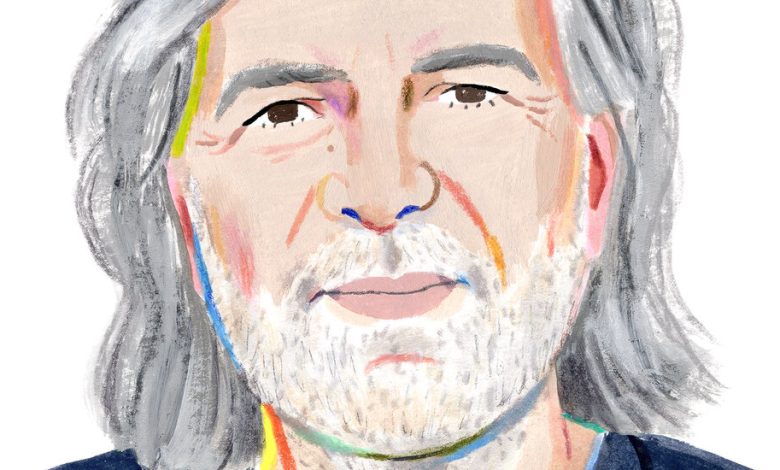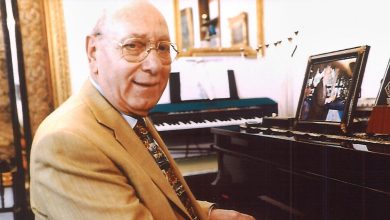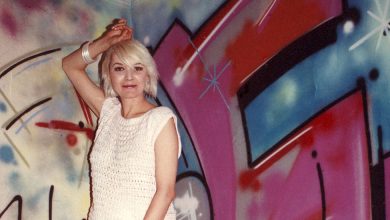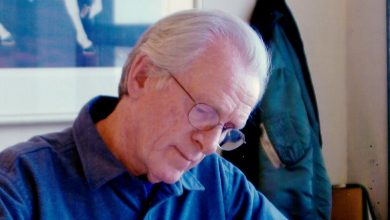Charles Frazier Wants You to Wait Before Reading the Classics

What books are on your night stand?
“In the Café of Lost Youth,” by Patrick Modiano; “Sleepless Nights,”by Elizabeth Hardwick; “The Philosophy of Modern Song,”by Bob Dylan; “Poems of the Late T’ang,”translated by A.C. Graham.
What’s the last great book you read?
Raymond Chandler’s “The Long Goodbye.” I wouldn’t argue that it’s his best book, but it is my favorite. I love the leisureliness of its voice, the tone and mood of weariness. It makes me want to listen to very slow trumpet jazz while I’m reading it. Maybe “Chet Baker In Tokyo,” an equally dreamy masterpiece of the final years.
Are there any classic novels that you only recently read for the first time?
Dostoyevsky, “The Idiot.”More of a page-turner than I expected. It’s in turns darkly comedic, tragic, messy and chaotic, but overall an engaging narrative of naïveté, corruption and greed.
Can a great book be badly written? What other criteria can overcome bad prose?
I don’t think so. However, that would depend on your definition of good writing. Mine is fairly loose, ranging at least from Nabokov to Kerouac. But if there isn’t music to the prose, a sense of voice and style and intentionality at the sentence level, I find it difficult to consider a book great.
Describe your ideal reading experience (when, where, what, how).
A tiny navy-and-yellow nylon tent. Twelve thousand feet elevation in the Cordillera Blanca, Peru. Warm light from a brass candle lantern. James Wright’s “This Journey.” 1982.
What book should nobody read until the age of 40?
I can’t think of a book that nobody should read until 40, but there are plenty that are better read or reread at that age or later. Over the years, I’ve come to realize that many great books we were assigned to read in school are far more enjoyable and have more to say when approached later in life.
But to narrow it down, I’ll randomly pull “Anna Karenina” out of a hat full of equally worthy titles. Reading that book patiently and with more life experience under one’s belt is an entirely different experience than blasting through it in a week for a college literature class.
Which writers — novelists, playwrights, critics, journalists, poets — working today do you admire most?
To name a few, I’ve long admired work by Wendell Berry, Cormac McCarthy, Haruki Murakami, Louise Erdrich and Julian Barnes. Most recently, I’ve been especially moved by the work of Tayari Jones, Devi S. Laskar, Silas House, Liza Wieland, Annette Saunooke Clapsaddle, Bryan Washington and Carter Sickels.
What do you read when you’re working on a book? And what kind of reading do you avoid while writing?
I read quite a bit of fiction from the period of the book I’m immersing myself in, not just classics but forgotten best sellers. When I’m researching, I read related nonfiction and dig into primary sources. For “The Trackers,” that meant everything from the summer 1937 issues of The New Republic, Vogue and Life to scans of airline timetable brochures, newspapers and a San Francisco phone book. I enjoy that work, so the trick is knowing when to climb back out of the hole.
I also read a good many older books unrelated to my own current work, or books in translation. NYRB Classics are favorites — while writing my last couple of novels, I’ve amassed a collection of those tidy little volumes that fills an entire bookshelf, plus some.
I tend to avoid current fiction while I’m writing, but I do continue buying. That way, by the time I’m done with my own work, I have a stack of new novels I’m eager to read.
Which subjects do you wish more authors would write about?
I read a lot of biographies of musicians and I like being around musicians. A professional banjo-playing friend with an M.F.A. in creative writing once told me, “There’s a reason writers get writer’s block but musicians don’t get player’s block.” I suppose he meant that making music is less solitary, more immediately gratifying and joyous, and when you pick up your instrument to play, you don’t always have the pressure to create something new every time. I feel all that when I’m around a group of musicians and maybe envy it. So, fairly selfishly, I wish there were more novels with musician characters to hang around with.
Do you prefer books that reach you emotionally, or intellectually?
I prefer books that do both, but if I had to settle it would be in favor of emotion.
What moves you most in a work of literature?
Language and sense of place, always.
How do you organize your books?
I’ve never been much of a book organizer. Even something as simple as keeping paperbacks and hardcovers separated has never lasted long. Right now things are worse than usual — we’re in the middle of an apparently never-ending house remodel, so about 95 percent of my books are in randomly packed boxes stacked five feet high in a storage unit. I tell myself that when I finally unpack, I’ll impose order.
What’s the best book you’ve ever received as a gift?
A few years ago my wife, Katherine, gave me a signed first edition of “Around the World on a Bicycle” (1939), by Fred A. Birchmore, for my birthday. I read it when I was 12 and for a couple of years firmly believed it was the best book ever written. After a long absence, it is recently back in print from University of Georgia Press.
How have your reading tastes changed over time?
I’ve become more easily bored by plot. A little goes a long way. Flashy twists and reversals and big convoluted surprises send me drifting away. In comparison, I’m glued to my reading chair by quieter novels like Marilynne Robinson’s “Housekeeping” or John Williams’s “Stoner.”
What book would you recommend for America’s current political moment?
Part of me wants to name a long, quiet, relatively peaceful book. Something that requires resetting your mind, slowing it down, while also demanding a great deal of concentration and a willingness to tolerate and even enjoy uncertainty, ambiguity and nuance. In other words, a book that could be a personal antitoxin against the current moment. Something like Henry James’s “The Golden Bowl” or George Eliot’s “Middlemarch.”
Instead I’ll suggest Friedrich Reck’s “Diary of a Man in Despair.” Reck, a German novelist and travel writer, kept a journal between 1936 and 1944 as he witnessed the country’s collapse into fascism. His observations are sharp, cynical, angry, and sometimes darkly humorous. They’re also chilling and often frighteningly familiar. Knowing how dangerous his diary could be, he hid it in the woods on his land at night. Eventually Reck was arrested and disappeared into Dachau where he died.
You’re organizing a literary dinner party. Which three writers, dead or alive, do you invite?
Barry Lopez, Reynolds Price, Jim Harrison. Because I miss them.
Disappointing, overrated, just not good: What book did you feel as if you were supposed to like, and didn’t? Do you remember the last book you put down without finishing?
If I’m really not enjoying a book, I bog down after 50 pages or so and stop. In those cases, I try to remind myself that not every book was written specifically for my tastes and that it’s best not to confuse my own preferences with gospel truth. I also find it useful to recognize that the writer may have spent years writing the book and knows it better — or at least deeper — than I do, so maybe the fault or flaw resides partially or completely in me.
The last time I put a book down without finishing was about a year ago. Proust. For the third time. But someday I’ll make it through to the end, all volumes. Sure I will.
What do you plan to read next?
I’ve been looking forward to fellow North Carolinian Jason Mott’s “Hell of a Book.”After that, maybe I’ll turn to Lauren Groff’s “Florida,”another on my stack of books to be read.



